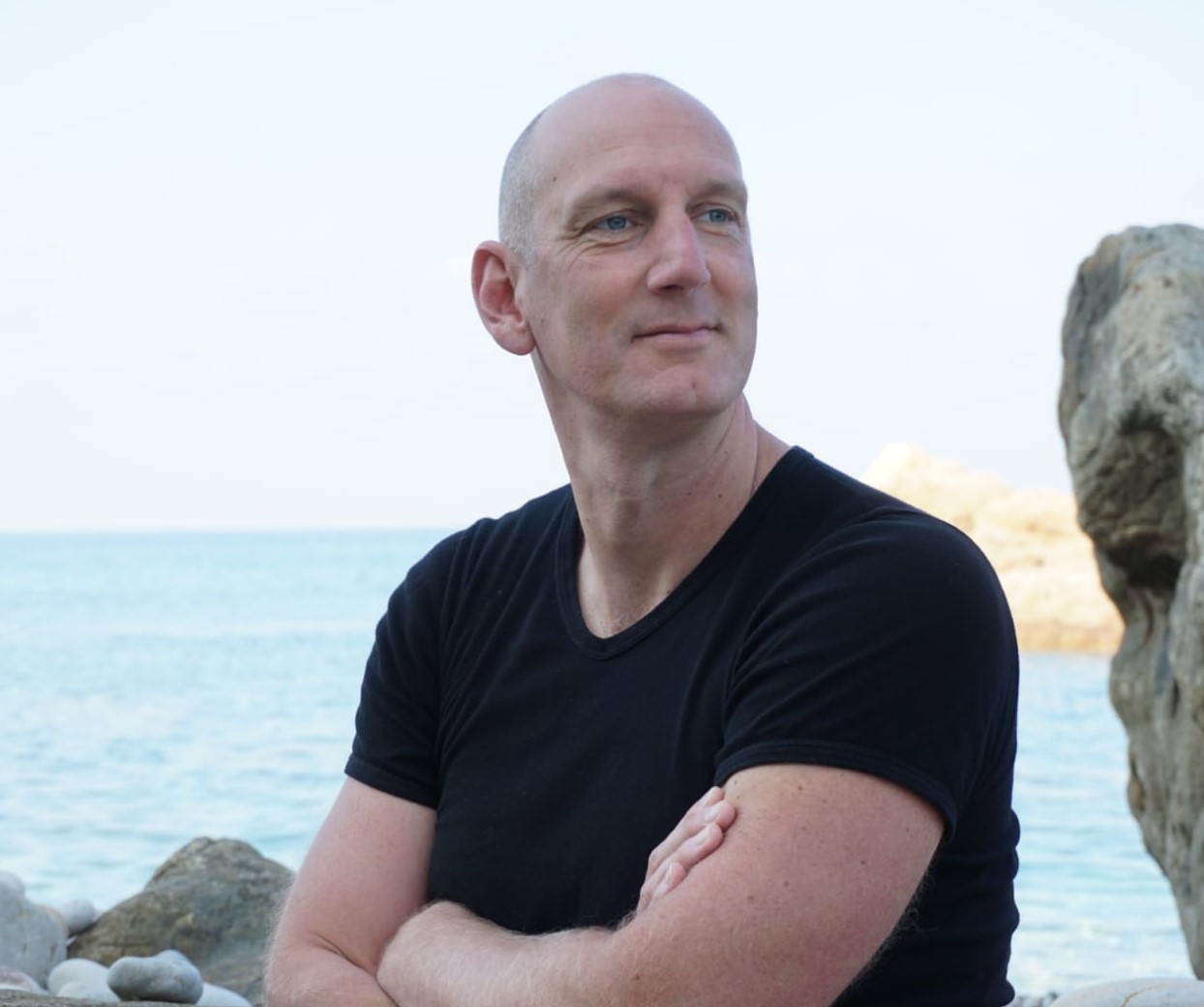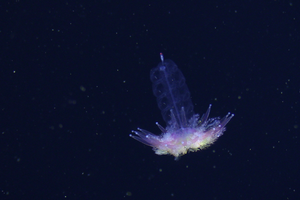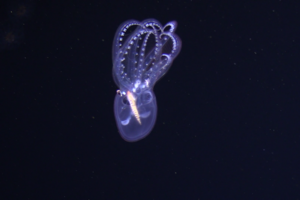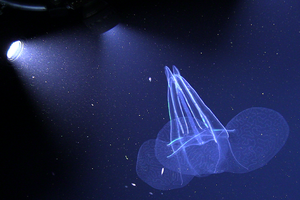Büro:
Raum: 1.509
Tel.: 0431 600-4566
E-Mail: hhoving(at)geomar.de
Anschrift:
Wischhofstr. 1-3
24148 Kiel
Berufserfahrung / Ausbildung
2022-heute Working group leader 'Deep Sea Biology'
2017-2022 Head of the Emmy Noether Junior Research Group 'The role of pelagic foodfalls in subsidizing deep-sea bottom communities in a changing ocean'
2013-2017 Future Ocean Postdoctoral fellow at GEOMAR – Helmholtz Centre for Ocean Research, Kiel, Germany.
2010-2013 Postdoctoral Fellow Monterey Bay Aquarium Research Institute (MBARI), Moss Landing, California, USA.
2009-2010 Honours College Coordinator, Faculty of Mathematics and Natural Sciences, University of Groningen, the Netherlands.
2008-2009 Lecturer (in Marine Biology and Invertebrate Zoology), Department of Ocean Ecosystems, Faculty of Mathematics and Natural Sciences, University of Groningen, the Netherlands.
2008 PhD Biology, University of Groningen, the Netherlands.
2002 MSc Biology, specialisation Marine Biology, University of Groningen, the Netherlands.
Wissenschaftliches Interesse
Henk-Jan Hoving leitet die Arbeitsgruppe 'Deep-Sea Biology', die sich mit Wachstum, Fortpflanzung, Biodiversität und der Nahrungsnetzökologie von Tiefseeorganismen, im Speziellen Cephalopoda (Kopffüßer) und gelatinösem Zooplankton, befasst.
Ein wichtiges Ziel seiner Arbeitsgruppe ist es, die Rolle der mittelgroßen pelagischen Fauna (Tintenfisch, Fisch und gelatinöses Plankton) in benthischen Tiefseegemeinschaften und der biologischen Kohlenstoffpumpe zu verstehen. Unsere Forschung beinhaltet die Dokumentation der biologischen Vielfalt und Verteilung mittelgroßer pelagischer Gemeinschaften, die Identifikation der in das Nahrungsnetz der Tiefsee involvierten Spezies, die Quantifizierung deren Beitrags zum Kohlenstoffbudget in der Tiefsee und die Erforschung von Aasfressergemeinschaften und deren Vorkommen in verschiedensten Regionen und Tiefen des Ozeans.
Die Arbeitsgruppe befasst sich auch mit der Frage, wie sich die pelagische Fauna an ein Leben in der Tiefsee anpasst, wobei der Schwerpunkt auf Wachstums-, Fortpflanzungs- und Nahrungsstrategien liegt. Dies hilft, die Lebensweise von pelagischen Lebewesen und Tiefseeorganismen zu verstehen und zu beobachten, wie diese mit dem Klimawandel und anderen Veränderungen der Umwelt umgehen.
Auszeichnungen
- Verleihung der Emmy Noether Auszeichung, Deutsche Forschungsgemeinschaft (DFG)
- Postdoctoral Fellowship, Cluster of Excellence 'Future Ocean', Deutsche Forschungsgemeinschaft (DFG)
- Postdoctoral Fellowship of the Monterey bay Aquarium Research Institute funded by the David and Lucile Packard Foundation
- Rubicon Postdoctoral Fellowship awarded by the Netherlands Organization for Scientific Research
Gremien
- 2020 Associate Editor Marine Biology
- 2019 Reviewer for DFG grant proposals
- 2019 Thesis examiner Rhodes University, South Africa
- 2013-2018 Member of the Cluster of Excellence ‘Future Ocean’
- 2016-heute Associate Editor Deep-Sea Research Part I: Oceanographic Research Papers.
- 2015-heute Editorial Board Member of Scientific Reports Nature Publishing Group
- 2013 PhD examiner for Melbourne University, Australia
- 2006-heute Provided referee reports on manuscript submissions for 25 scientific journals.
- Seit 2019 Invited member of the Helmholtz Pelagic Optics Initiative
- Seit 2019 Member of the American Society for Limnology and Oceanography
- Seit 2018 Invited member of the GEOMAR Technology and Logistics Council (“Beirat”)
- Seit 2017 Member of the Deep-Sea Biology Society
- Seit 2015 Collaborator in the SFB 754 "Climate-Biogeochemistry Interactions in the Tropical Ocean"
- Seit 2015 Member of the Climate Change Working Group in the Deep Ocean Stewardship Initiative
- Seit 2012 Elected council member of the Cephalopod International Advisory Council
Expeditionen
Ausfahrten der letzten 5 Jahre (gesamt 30 mehrtägige Schifffahrten; > 360 Tage)
2024 R/V Maria S. Merian MSM126, 26 days, Madeira. ROV PHOCA, Observational tools, nets, eDNA sampling multibeam mapping. Chief scientists: Dierking and Hoving
2024 R/V Meteor M202, 10 days, Azores, Observational tools, nets, eDNA sampling multibeam mapping. Chief scientists: Merten and Hoving
2022 R/V Heincke HE605, 28 days, Experiments stressors Themisto abyssorum for iAtlantic, Chief scientist Dr Henk-Jan Hoving & Charlotte Havermans
2019 R/V Western Flyer, 7 days MBARI Midwater Ecology Expedition Monterey Bay. Chief scientist Dr. BH Robison
2019 FS Polarstern PS121, 35 days, ancillary user project CARCASS investigating the role of plankton and nekton in the biological carbon pump using deep-sea landers, PELAGIOS, Multinet, CTD and eDNA collection. Chief Scientist Dr. K Metfies (AWI)
2019 FS Poseidon POS532, 21 days investigating the role of gelatinous zooplankton in the biological carbon pump in Cape Verde waters, manned submersible JAGO, PELAGIOS, Multinet, CTD and eDNA collection. Chief Scientist Dr. HJT Hoving
Ausgewählte Publikationen
Hoving HJT, F. Visser (2024) Whales and squid in a deep-sea arms race. Limnology and Oceanography Letters 9, 165–171 https://doi.org/10.1002/lol2.10391
Hoving HJT, Haddock S, Robison, BH, Seibel, B (2024) Giant eggs in a deep-sea squid. Ecology 105(7):e4319. https://doi.org/10.1002/ecy.4319
Burford BP, Wild LA, Schwarz R, Bowers A, Chenoweth E, Sreenivasan A, Elahi R, Gilly WF, Heintz RA, Field JC, Hoving H.J.T., Straley J & Denny MW (2022) Rapid range expansion of a marine ectotherm reveals the demographic and ecological consequences of short-term variability in seawater temperature and dissolved oxygen. American Naturalist https://doi.org/10.1086/718575
Hoving H.J.T. and Freitas R (2021) Pelagic observations of the Midwater scorpionfish Ectreposebastes imus (Setarchidae) suggests a role in trophic coupling between deep-sea habitats. Journal of Fish Biology 100 (2): 586-589 https://doi.org/10.1111/jfb.14944
Merten, V., Bayer, T., Reusch, TBH., Puebla, O., Fuss, J., Stefanschitz, J., Lischka, A., Hauss, H., Neitzel, P., Piatkowski, U., Czudaj, S., Christiansen, B., Denda, A., Hoving, H.J.T. (2021) An Integrative Assessment Combining Deep-Sea Net Sampling, in situ Observations and Environmental DNA Analysis Identifies Cabo Verde as a Cephalopod Biodiversity Hotspot in the Atlantic Ocean. Frontiers in Marine Science https://doi.org/10.3389/fmars.2021.760108
Hoving, H.J.T., Neitzel, P., Hauss, H., Christiansen, S., Kiko, R., Robison, B.H., Silva, P, and Körtzinger, A. (2020) In situ observations show vertical community structure of pelagic fauna in the eastern tropical North Atlantic off Cape Verde. Scientific Reports 10:21798 doi.org/10.1038/s41598-020-78255-9
Lischka, A, Lacoue-Labarthe, T, Bustamante, P, Piatkowski, U, Hoving HJT. (2020) Trace elements in the boreoatlantic gonate squid (Gonatus fabricii) demonstrate its ecological key role in polar regions of the Atlantic Ocean. Environmental Pollution 256: 113389 https://doi.org/10.1016/j.envpol.2019.113389
Hoving, HJT, Christiansen, S, Fabrizius, E, Hauss, H, Kiko, R, Linke, P, Neitzel, P, Piatkowski, U. and Körtzinger, A. (2019) The Pelagic In situ Observation System (PELAGIOS) to reveal biodiversity, behavior and ecology of elusive oceanic fauna. Ocean Science 15 (5) 1327-1340 doi.org/10.5194/os-2018-131.
Christiansen, S*, Hoving, HJT*, Schütte, F, Hauss, H, Karstensen, H, Körtzinger, A, Schröder, S, Stemmann, L, Christiansen, B, Picheral M, Brandt, P, Robison, BH, Koch, R, Kiko, R. (2018) Particulate matter flux interception in oceanic mesoscale eddies by the polychaete Poeobius sp. Limnology and Oceanography https://doi.org/10.1002/lno.10926 *equal contribution
Schwarz, R, Piatkowski, U, Hoving, HJT. (2018) The impact of environmental temperature on the lifespan of octopods. Marine ecology Progress Series 605: 151-164
Hoving HJT, Bush SL, Haddock SHD, Robison BH. (2017) Bathyal feasting: post-spawning squid as a source of carbon for deep-sea benthic communities. Proc. R. Soc. B 284: 20172096
Purser A, Marcon Y, Hoving, HJT, Vecchione M, Piatkowski U, Easone D. Bluhm H, Boetius A. (2016). Association of deep-sea incirrate octopods with manganese crusts and nodule fields in the Pacific Ocean. Current Biology Volume 26 (24), 1268-1269
Hoving HJT, Laptikhovsky VV, Robison BH. (2015). Vampire squid’s reproductive strategy is unique among coleoid cephalopods. Current Biology 25 (8): 322–323






